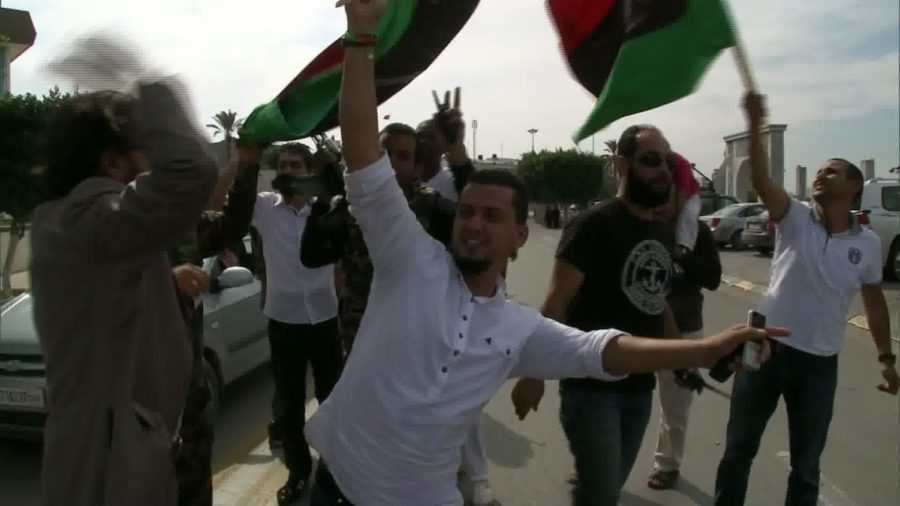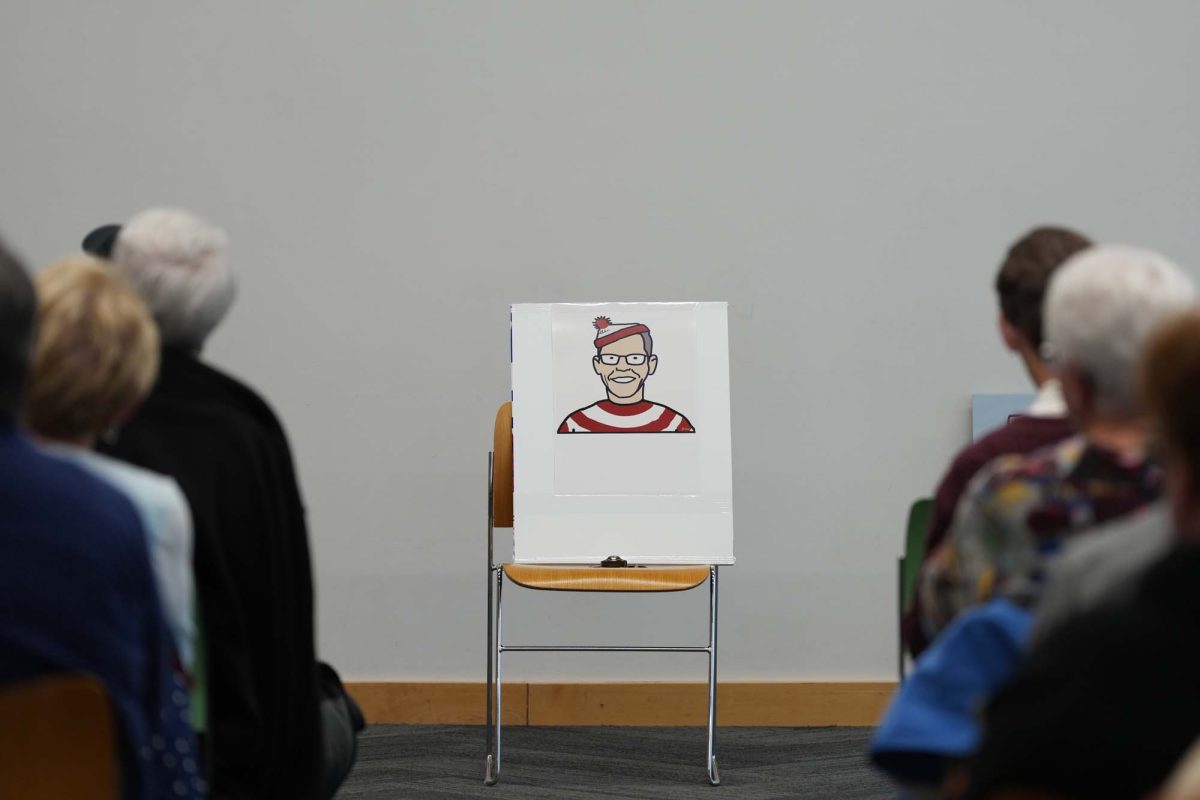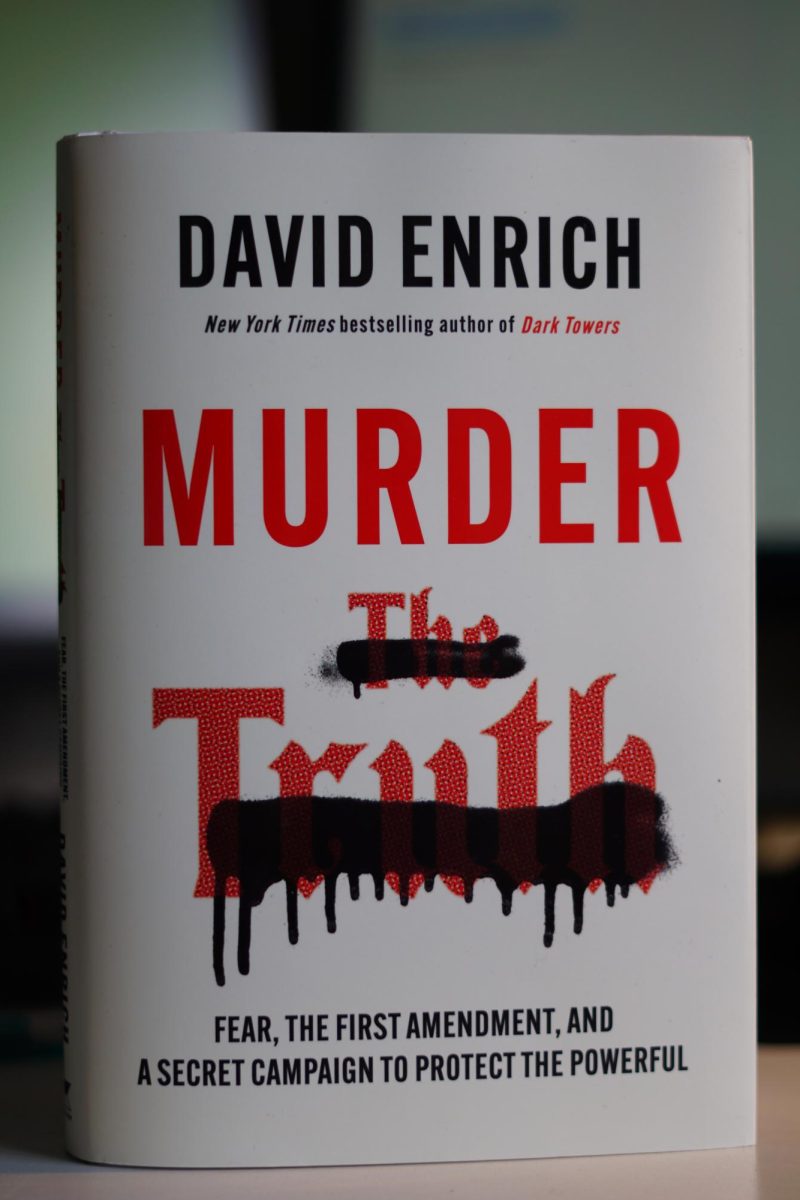Gadhafi’s death marks beginning of new era in Libya
Revolutionary fighters have captured deposed Libyan leader Moammar Gadhafi, Libyan television said Thursday, Oct. 20, 2011, citing the Misrata Military Council. That report could not be independently confirmed.
October 20, 2011
Moammar Gadhafi, leader of Libya, died Thursday, leaving reaction to be had for people all over the world.
“I personally feel joy and happiness, Libya is finally free from Gadhafi’s choke hold of 42 years. I am looking forward to the future, to a brand new Libya,” said Libyan ISU alumnus Hassan Burawi, following the death of his country’s longtime leader.
Burawi said he began to get news from Libya as soon as events were unfolding.
“Everybody [in Libya] was happy, people were out in the streets, chanting, celebrating, happy for the country to be liberated. This is the end of a very horrific chapter,” he said.
The death of Gadhafi marks the continuation of revolutionary efforts in the Middle East and North Africa. Gadhafi, who has been known by Western countries for his eccentric personality, was killed by Libyan rebels in Sirte, Libya, following a NATO air strike Thursday afternoon Libyan time. The air strike led to the destruction of a military convoy, in which Gadhafi was fleeing Sirte.
Afterward, shootings between Gadhafi’s forces and the rebels ensued, leading to Gadhafi’s death from gunshot wounds.
The fall of Gadhafi’s regime was not the first in the Arab world of late as neighboring countries Tunisia and Egypt have both had revolutionary overthrows in the historical “Arab Spring” this year. The death of Gadhafi will likely be the final chapter of a Libyan revolution that has been ongoing since Feb. 17.
“Gadhafi started losing power on Feb. 17, 2011. That was when the revolution started,” Burawi said.
Burawi spoke about Gadhafi’s association with terrorist acts and how they have affected Libya’s international relations.
“As far as Libya’s diplomatic relations with the rest of the world, Libya won’t be looked at as a country that supports terrorism anymore and we won’t be blacklisted,” Burawi said. “Gadhafi gave Libya the reputation of being a terrorist country because of his financial support of terrorist organizations as well as his link to several terrorist acts such as the Lockerbie bombings.”
Mack Shelley, university professor of political science, spoke about the fall of Gadhafi’s regime and its ties to other Middle Eastern revolutions.
“This relates to the capture and death of Saddam Hussein,” Shelley said. “It’s another situation where you have major intervention from the U.S. and Europe. NATO was effectively acting as the air force for the rebels, and that air force made it easier for the rebels in the capture of Gadhafi.”
Shelley also spoke about possible U.S. and NATO intervention in other Middle Eastern countries.
“There are still bloody series of conflicts in Syria, whether the U.S. and NATO are going to intervene in Syria is a possibility that the Syrian government needs to worry about,” Shelley said.
Shelley summed up by describing the damage that can potentially be caused by intervention in these governments.
“You can’t approach all the Middle Eastern governments the same. What worked in Iraq and Libya might not work in Syria or Sudan,” Shelley said. “Estimates of around 100,000 Iraqi civilians as well as numerous U.S. troops died in the U.S. Iraqi invasion, so it is a costly thing to go into.”







